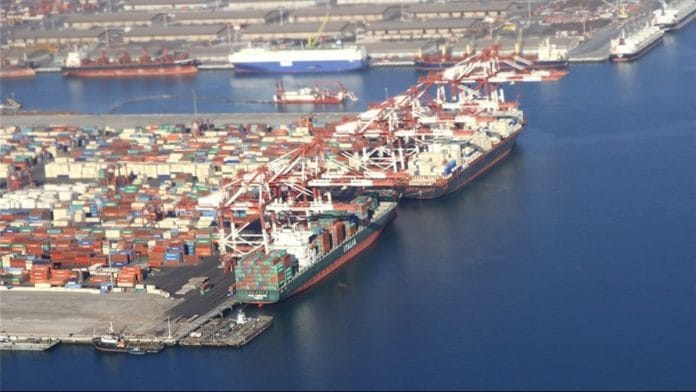New Delhi: In an expected move, the US government has decided to revoke the 2018 sanctions waiver, given by Trump 1.0, for the strategic Iranian port of Chabahar, impacting India’s plans.
On Friday, External Affairs Ministry spokesperson Randhir Jaiswal cautiously reacted to the development saying, “We have seen the US press statement regarding revocation of sanctions waiver for Chabahar port. We are presently examining its implications for India”.
It is a major setback for India, which is developing the strategically-located port, close to the Chinese-developed Gwadar port in Pakistan.
It was in February this year that US President Donald Trump had directed his administration to “modify or rescind” sanction waivers for the Chabahar port project.
In November 2018, India had received a sanction waiver for the port project from Trump during his first term.
“The secretary has provided for an exception from the imposition of certain sanctions under the Iran Freedom and Counter-Proliferation Act of 2012 (IFCA) with respect to the development of Chabahar port and the construction of an associated railway and for the shipment of non-sanctionable goods through the port for Afghanistan’s use, as well as Afghanistan’s continued imports of Iranian petroleum products,” the exception had said in 2018.
India had got the waiver primarily for the port’s importance in the reconstruction and economic development of Afghanistan. However, now the Taliban are back in power in Afghanistan.
The US Department of State, in a statement Thursday, said that consistent with President Donald Trump’s maximum pressure policy to isolate the Iranian regime, it has revoked the sanctions exception issued in 2018 under the Iran Freedom and Counter-Proliferation Act (IFCA) for Afghanistan reconstruction assistance and economic development, effective 29 September.
“Once the revocation is effective, persons who operate the Chabahar port or engage in other activities described in IFCA may expose themselves to sanctions under IFCA,” the statement said.
Located in Sistan-Balochistan province on Iran’s energy-rich southern coast, Chabahar port is a strategically important for India, which is developing it along with Iran.
The idea is for this port to boost connectivity and trade ties, not just between the two countries but for the entire region. India and Iran have projected the port as a key hub for the INSTC project.
The INSTC is a 7,200-km-long multi-mode transport project for moving freight between India, Iran, Afghanistan, Armenia, Azerbaijan, Russia, Central Asia and Europe.
The project started in 2003 during Iranian President Muhammad Khatami’s visit to India.
India’s state-owned India Ports Global Limited (IPGL), through its wholly owned subsidiary India Ports Global Chabahar Free Zone (IPGCFZ), was in charge of the port operations since 24 December 2018, which was being renewed every year.
Only last year, India and Iran, after ironing out several legal issues, signed the 10-year port deal that would allow the Indian firm to manage and operate a terminal in Iran’s Chabahar.
According to a study undertaken by the ORF, between 2019 and 2021, 123 vessels and 1.8 tonnes of bulk and general cargo passed through Chabahar.
By August 2022, the terminal had handled over 4.8 million tonnes of bulk cargo, including trans-shipments from Bangladesh, Brazil, Australia, Germany, the United Arab Emirates (UAE), and Russia.
Since then, more than 90,000 20-foot equivalent units (TEUs) of container traffic and more than 8.4 MMT of bulk and general cargo have been handled by the port, the ORF study said.
(Edited by Viny Mishra)
Also read: How escalation in Iran-Israel tensions could hit Indian govt’s ongoing Chabahar port expansion work






